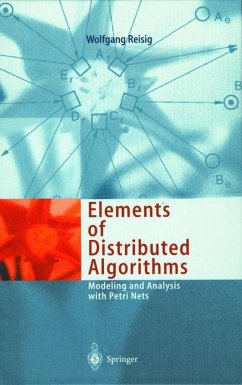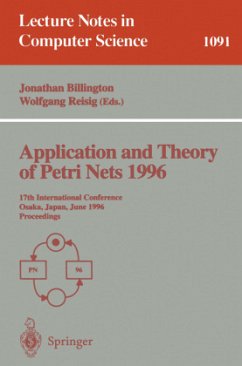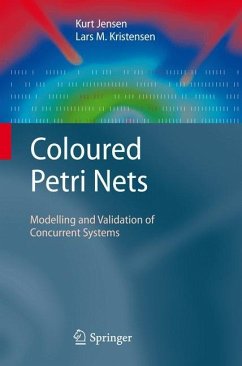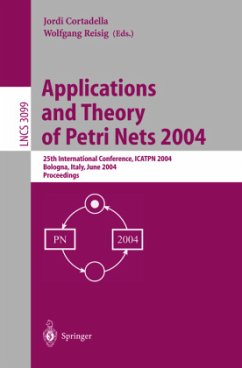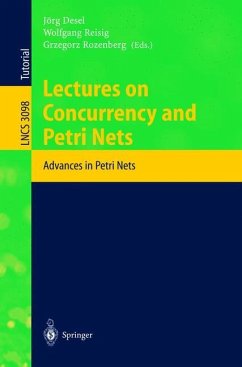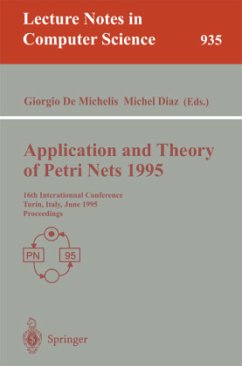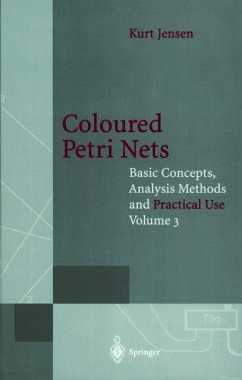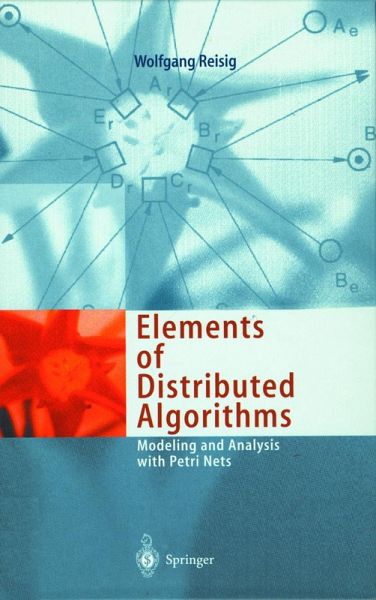
Elements of Distributed Algorithms
Modeling and Analysis with Petri Nets
Versandkostenfrei!
Versandfertig in 6-10 Tagen
31,99 €
inkl. MwSt.
Weitere Ausgaben:

PAYBACK Punkte
16 °P sammeln!
Distributed Computing is rapidly becoming the principal computing paradigm in diverse areas of computing, communication, and control. Processor clusters, local and wide area networks, and the information highway evolved a new kind of problems which can be solved with distributed algorithms.In this textbook a variety of distributed algorithms are presented independently of particular programming languages or hardware, using the graphically suggestive technique of Petri nets which is both easy to comprehend intuitively and formally rigorous. By means of temporal logic the author provides surpris...
Distributed Computing is rapidly becoming the principal computing paradigm in diverse areas of computing, communication, and control. Processor clusters, local and wide area networks, and the information highway evolved a new kind of problems which can be solved with distributed algorithms.
In this textbook a variety of distributed algorithms are presented independently of particular programming languages or hardware, using the graphically suggestive technique of Petri nets which is both easy to comprehend intuitively and formally rigorous. By means of temporal logic the author provides surprisingly simple yet powerful correctness proofs for the algorithms.
The scope of the book ranges from distributed control and synchronization of two sites up to algorithms on any kind of networks. Numerous examples show that description and analysis of distributed algorithms in this framework are intuitive and technically transparent.
In this textbook a variety of distributed algorithms are presented independently of particular programming languages or hardware, using the graphically suggestive technique of Petri nets which is both easy to comprehend intuitively and formally rigorous. By means of temporal logic the author provides surprisingly simple yet powerful correctness proofs for the algorithms.
The scope of the book ranges from distributed control and synchronization of two sites up to algorithms on any kind of networks. Numerous examples show that description and analysis of distributed algorithms in this framework are intuitive and technically transparent.





